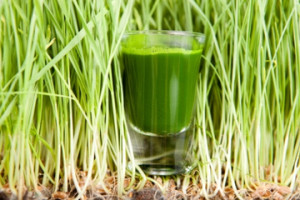 Sprouted plant seeds – biogenic or life-containing products – have been known for thousands of years. They are used in contemporary kitchens of many countries. They are still not very popular with us. It's a pity. After all, they are a mine of health, because they contain many vitamins, mineral salts, amino acids and enzymes. Sprouts are very easy to prepare at home, using special utensils or an ordinary jar covered with gauze attached to its opening.
Sprouted plant seeds – biogenic or life-containing products – have been known for thousands of years. They are used in contemporary kitchens of many countries. They are still not very popular with us. It's a pity. After all, they are a mine of health, because they contain many vitamins, mineral salts, amino acids and enzymes. Sprouts are very easy to prepare at home, using special utensils or an ordinary jar covered with gauze attached to its opening.
The grains should be soaked clean for several hours, non-chlorinated water. In the morning we pour out the water (we can water the flowers with it). Rinse the sprouting grains well. Place the jar diagonally in a sunny place. We rinse 2 times a day in plenty of water. If mold appears on the sprouts anyway, we need all breeding, unfortunately, throw it away.
Almost all grains are suitable for germination, np. wheat, oats, lanterns (alpha-alpha), radishes, cress, lentils, self, mung beans, sunflower, white and red cabbage, cieciorki, sesame. If we germinate small grains, we cover the entire bottom of the jar or germinating vessel with them, medium - they should be about a third of the area, a big – quarter.
The larger the grains,-the pre-soaking period should be longer (small -4-6 hours, medium-8-10, and large ones - 12-24 hours). Sprouts of various plants differ in nutritional value. As it detoxifies the body, alfalfa is rich in iron, calcium and phosphorus, it also contains many vitamins, protein with essential amino acids. Sprouted wheat contains a lot of vitamin C. (6 times more than ungerminated grains), vitamin E., karotenu, B vitamins, proteins and enzymes. Lentils are a rich source of wholesome protein, vitamins and minerals. Sesame, in turn, contains: ten times more calcium than milk, one and a half times more iron than beef liver, three times more phosphorus than eggs and large amounts of protein and vitamins B1, B2, B6. However, soybeans contain the most protein (35 proc. compared to 15-20 proc. in meat products). Vitamin A can be found in it, B, C i H. Mung beans, lentils and peas po 4 days of germination contain more vitamin B12 than meat products. Therefore, it is difficult to defend the thesis of opponents of vegetarianism about the alleged lack of this vitamin in plant products. Sprouted sunflower seeds contain vitamin B6, B12, D, protein, iron, potassium and essential fatty acids.
You can prepare many dishes from sprouted grains, add them to soups, salads, sauces, sandwiches. You can sprinkle them on potatoes, rice, groats, pasta. We offer recipes for dishes, which may encourage you to reach for sprouts more often.
Live salad: from 1-2 cups of shredded white or sauerkraut, 1 diced fresh or pickled cucumber, parsley, sliced carrots, half a cup of watercress, half a cup of sprouts (wheat, sunflower, self, lanterns), tablespoons of oil, spoons of lemon juice, seasoned with salt, hot peppers and coriander.
Spicy lentils – salad: from 1 cups of lentil or soy sprouts, finely chopped onion, 2 crushed garlic cloves, a bunch of chopped parsley, lemon juice, spoons of olive oil or oil, seasoned with pepper or ginger.
From the sprouted wheat, we can prepare a wonderful drink containing vitamin E – REJUVELAK. Soak the wheat grains 8-10 hours and we germinate them 2-3 days, washing thoroughly 2 times a day. Sprinkle the sprouted wheat with three times the volume of non-chlorinated water. We leave it on 2 days at room temperature. Pour through the filtered liquid, and sprouts are poured with water again 1 day. We repeat these steps. The liquid obtained in this way is suitable for drinking and as a basis for making soups, sauces etc..
We can also prepare the milk of youth from Rejuvelak: we mix
a cup of ground beans, fresh nuts (earthworks, hazelnuts, Italian) or sunflower seeds, 1 a cup of Rejuvelak, 2 spoons of yeast and and a teaspoon of honey.